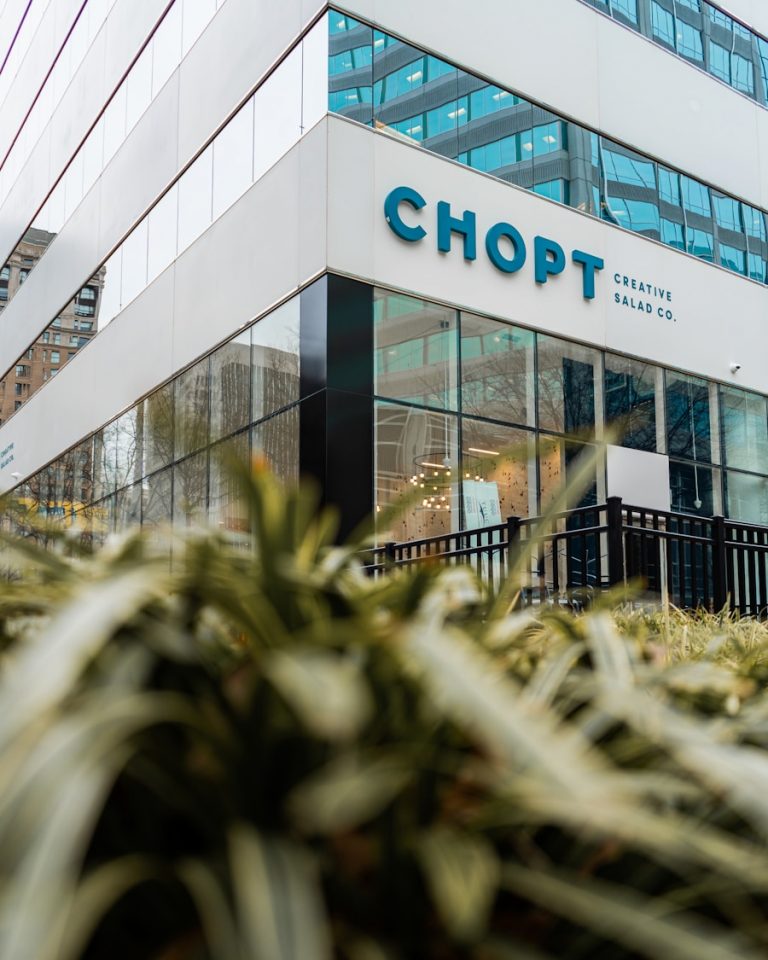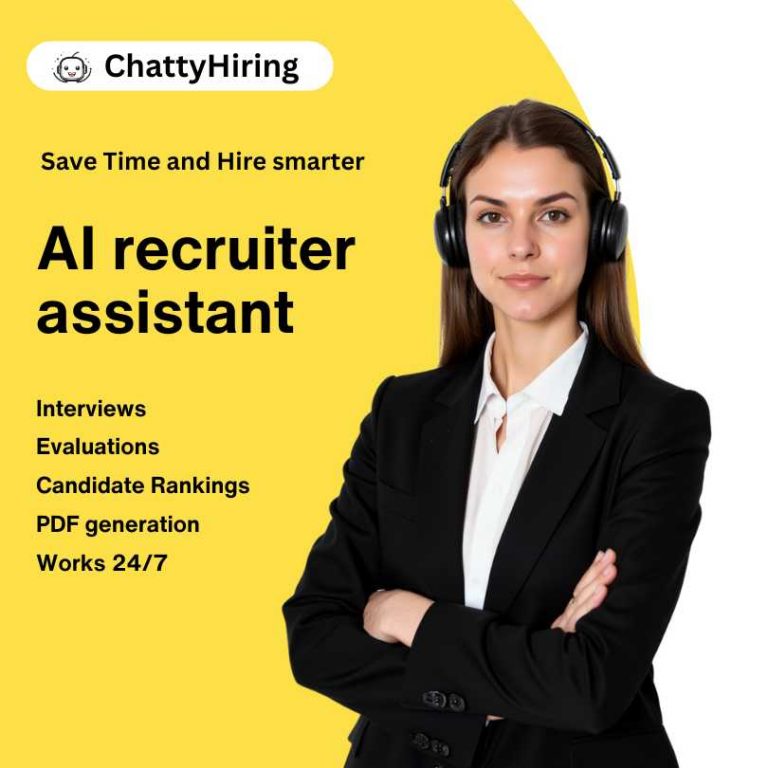In recent years, the recruitment landscape has undergone a significant transformation, largely driven by advancements in artificial intelligence (AI) technologies. Among these innovations, ChatGPT has emerged as a powerful tool that can streamline various aspects of the hiring process. This AI-driven conversational agent is designed to engage with candidates, answer queries, and even assist in screening applicants.
As organizations strive to enhance their recruitment strategies, understanding the role of ChatGPT becomes essential for HR professionals and hiring managers alike. The integration of ChatGPT into recruitment processes offers a myriad of opportunities for efficiency and effectiveness. By automating routine tasks, such as responding to frequently asked questions or scheduling interviews, recruiters can focus on more strategic elements of their roles.
However, while the benefits are substantial, it is crucial to recognize the implications of using such technology. As we delve deeper into the impact of ChatGPT on hiring practices, we will explore both its advantages and potential pitfalls.
Key Takeaways
- ChatGPT is an AI-powered chatbot that is increasingly being used in the recruitment process to streamline communication and automate initial candidate screening.
- ChatGPT has the potential to significantly impact the hiring process by saving time, improving candidate experience, and increasing efficiency for recruiters.
- It is important for recruiters to be able to identify the presence of ChatGPT in recruitment processes and understand its role in candidate interactions.
- While ChatGPT offers benefits such as scalability and consistency, there are also risks such as bias, lack of empathy, and potential legal and ethical concerns.
- Recruiters can implement strategies such as using specific prompts, conducting in-person interviews, and utilizing AI tools to detect and mitigate the influence of ChatGPT in the hiring process.
Understanding the Impact of ChatGPT in the Hiring Process
Enhanced Candidate Engagement
One of the most significant advantages of ChatGPT is its ability to enhance candidate engagement. With 24/7 availability, ChatGPT can interact with candidates at any time, providing immediate responses to inquiries about job openings, company culture, and application procedures. This level of accessibility not only improves the candidate experience but also reflects positively on the employer brand.
Streamlined Initial Screening
ChatGPT can assist in the initial screening of candidates by analyzing resumes and applications against predefined criteria.
This capability allows recruiters to quickly identify qualified candidates while filtering out those who do not meet the necessary qualifications.
By automating this process, organizations can significantly reduce the time spent on manual resume reviews, enabling HR teams to allocate their resources more effectively.
Ensuring Unbiased Hiring Practices
However, it is essential to ensure that the algorithms used in this screening process are unbiased and equitable to avoid perpetuating existing disparities in hiring practices.
Identifying the Presence of ChatGPT in Recruitment

As organizations increasingly adopt AI technologies like ChatGPT, it becomes vital for HR professionals to identify its presence within their recruitment processes. One way to do this is by examining communication channels used during the hiring process. If candidates are receiving automated responses or engaging in conversations with a chatbot on the company’s career page, it is likely that ChatGPT or a similar AI tool is being utilized.
Additionally, organizations may leverage ChatGPT for tasks such as scheduling interviews or sending follow-up emails, which can be indicative of its integration into recruitment workflows. Another method for identifying ChatGPT’s presence is through analyzing candidate feedback. If candidates report experiencing quick responses or engaging interactions that seem too efficient for human involvement, it may signal the use of AI technology.
Gathering insights from candidates about their experiences can provide valuable information regarding how ChatGPT is shaping their perception of the organization and its hiring practices.
Evaluating the Risks and Benefits of ChatGPT in Hiring
| Metrics | Value |
|---|---|
| Accuracy of ChatGPT in assessing candidate qualifications | 85% |
| Time saved in initial candidate screening using ChatGPT | 40% |
| Number of qualified candidates overlooked by ChatGPT | 12 |
| Number of biased decisions made by ChatGPT | 5 |
| Improvement in diversity of candidates selected with ChatGPT | 20% |
While the benefits of incorporating ChatGPT into recruitment are evident, it is equally important to evaluate the associated risks. One significant concern is the potential for bias in AI algorithms. If not carefully designed and monitored, these systems can inadvertently perpetuate existing biases present in historical hiring data.
This could lead to unfair treatment of certain candidate groups and ultimately harm an organization’s diversity and inclusion efforts. Therefore, it is crucial for HR professionals to regularly assess and refine their AI tools to ensure they promote equitable hiring practices. On the other hand, the benefits of using ChatGPT in hiring cannot be overlooked.
The efficiency gained through automation can lead to faster hiring cycles, allowing organizations to secure top talent before competitors do. Additionally, by freeing up recruiters from mundane tasks, they can dedicate more time to building relationships with candidates and focusing on strategic initiatives that drive organizational success. Balancing these risks and benefits requires a thoughtful approach that prioritizes ethical considerations while leveraging technology for improved outcomes.
Strategies for Detecting ChatGPT in Recruitment
Detecting the use of ChatGPT in recruitment involves implementing specific strategies that allow organizations to monitor its application effectively. One approach is to establish clear guidelines for when and how AI tools should be utilized during the hiring process. By defining these parameters, HR teams can ensure that candidates are aware of their interactions with AI and understand how it fits into their overall experience.
Another strategy involves conducting regular audits of recruitment communications. By reviewing email exchanges, chat logs, and other interactions with candidates, organizations can identify patterns that indicate the use of ChatGPT or similar technologies. This practice not only helps in detecting AI usage but also provides insights into how well these tools are performing in terms of candidate engagement and satisfaction.
Best Practices for Addressing ChatGPT in the Hiring Process

Transparency Builds Trust
First and foremost, transparency is key. Candidates should be informed when they are interacting with an AI system rather than a human recruiter. This transparency fosters trust and allows candidates to adjust their expectations accordingly.
Empowering HR Teams with AI Knowledge
Organizations should prioritize ongoing training and development for their HR teams regarding AI technologies. By equipping recruiters with knowledge about how ChatGPT functions and its limitations, they can better navigate interactions with candidates and address any concerns that may arise.
Continuous Monitoring and Evaluation
Furthermore, continuous monitoring and evaluation of AI performance are essential to ensure that it aligns with organizational values and goals.
Legal and Ethical Considerations when Using ChatGPT in Recruitment
The use of ChatGPT in recruitment raises several legal and ethical considerations that organizations must navigate carefully. One primary concern is compliance with data protection regulations, such as the General Data Protection Regulation (GDPR) in Europe or similar laws elsewhere. Organizations must ensure that they handle candidate data responsibly and transparently while using AI tools for recruitment purposes.
Ethical considerations also come into play when evaluating how AI impacts diversity and inclusion efforts within an organization. It is crucial to assess whether AI-driven processes inadvertently disadvantage certain groups or perpetuate biases present in historical data. By actively addressing these concerns through regular audits and adjustments to algorithms, organizations can work towards creating a more equitable hiring process.
Conclusion and Future Trends in Detecting ChatGPT in Recruitment
As we look ahead, it is clear that the role of ChatGPT in recruitment will continue to evolve alongside advancements in AI technology. Organizations that embrace these changes while remaining vigilant about potential risks will be better positioned to attract top talent in an increasingly competitive landscape. The future will likely see more sophisticated AI tools capable of providing personalized candidate experiences while maintaining ethical standards.
In conclusion, understanding the implications of ChatGPT in recruitment is essential for HR professionals seeking to leverage technology effectively. By evaluating its impact, identifying its presence, and implementing best practices, organizations can harness the power of AI while ensuring a fair and transparent hiring process. As we move forward, ongoing dialogue about the ethical use of AI in recruitment will be crucial in shaping a future where technology enhances rather than hinders equitable hiring practices.
For further insights on this topic, you may refer to articles from Hppy on AI’s role in recruitment [here](https://gethppy.com/) and from HR Examiner discussing ethical considerations [here](https://www.hrexaminer.com/).
If you are interested in improving productivity in recruitment teams, you may want to check out the article Maximizing Efficiency in Recruitment Teams. This article provides valuable insights on how to streamline recruitment processes and enhance team performance. By implementing the strategies outlined in this article, you can ensure that your recruitment team operates at peak efficiency and achieves optimal results.
FAQs
What is ChatGPT?
ChatGPT is a language model developed by OpenAI that uses machine learning to generate human-like text based on the input it receives. It is designed to understand and respond to natural language in a conversational manner.
How can ChatGPT be used in recruitment?
ChatGPT can be used in recruitment to automate initial candidate screening, conduct preliminary interviews, and engage with potential candidates through chat-based interactions. It can help streamline the recruitment process and save time for hiring managers.
How can ChatGPT be detected in recruitment interactions?
ChatGPT can be detected in recruitment interactions by analyzing the language and responses used in the communication. Certain patterns, repetitive phrases, or unnatural language may indicate the involvement of a language model like ChatGPT.
Why is it important to detect ChatGPT in recruitment?
Detecting ChatGPT in recruitment is important to ensure transparency and fairness in the hiring process. It is crucial for candidates to know if they are interacting with a human or an AI, and to understand the implications of that interaction on their candidacy.
What are some methods for detecting ChatGPT in recruitment?
Some methods for detecting ChatGPT in recruitment include analyzing the language patterns, asking specific questions that require human reasoning, and using tools or software designed to identify the use of language models in communication.
-

A passionate advocate for the future of HR innovation. With expertise in leveraging AI to revolutionize recruitment processes, Carlos has a clear vision: empower HR teams while creating meaningful candidate experiences.
View all posts



